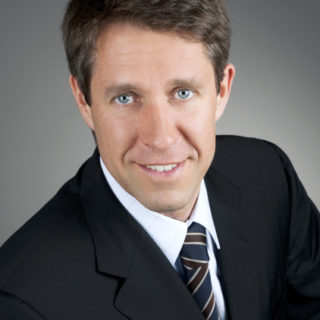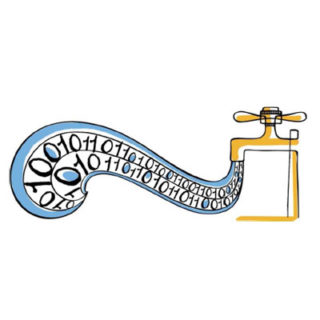 What exactly is the new title “storage efficiency czar”?
What exactly is the new title “storage efficiency czar”?
Dave: My job is to make sure that we solve our customers' problems using less storage. Of course, I understand that might seem counterintuitive since we're in business to make money, but I assure you it's not. Our customers don't always believe it either. The best response I've heard to some of our more dubious customers came from one of our salesmen, who said, “If I can help you save 30 cents or 50 cents from every dollar, you will be more likely to come back to me next time you get a dollar.” It's a long-term view of business. We help customers save money and do more in the short term, but we are investing in our customers and our own business for the long term. That can be a tough position to take. But at NetApp, our goal is to continue to grow market share, and our strategy to grow that share is to find clever ways to drive our customers' costs down. Our business success, even in these tough economic times, validates our belief that driving costs down remains a big customer priority.
Why did NetApp create a “storage efficiency czar” position?
Dave: I picked up this role when Rob Salmon, our executive vice president, Field Operations, observed that we seemed to be coming out of this recession a little more quickly than a lot of our competition. When we, as an executive team, looked at the results we've been seeing, we recognized that one of the reasons appears to be our innovation in storage efficiency. I am talking about storage efficiency in terms of both the story that we tell and the actual capabilities that we deliver as we work with our customers. But with all of our success, Rob had one big concern: many customers aren't taking full advantage of the features we offer today, which we view as missed opportunity to help them save more. Well, in the short term it's good that people buy from us and we close the deal. But in the long run, our customers might not get the full results they expect because they've not taken full advantage of the efficiency technologies we've been discussing. The czar role is intended to help our customers take full advantage of the features we offer, while driving stronger adoption of our whole portfolio.
What would you say is your primary responsibility in this role?
Dave: My primary job is as an advocate for the customers to get the most out of their storage environments without sacrificing performance and, ultimately, to increase adoption of our storage efficiency technologies. There are three pieces of the storage efficiency process:
Developing technologies that increase storage efficiency. And, in a number of cases, we have more ideas for that. We look at the technologies that we’ve shipped and say, wow, we can do even better than that. Customer input in technology evolution is critical.
Telling the story to customers. Drive awareness for the reasons organizations ought to do business with NetApp and how we add can value to their IT environment.
Simply driving adoption. Make sure our customers discover and use the efficiency features, that it’s easy to turn them on, and make it possible for them to measure and monitor the results
How is NetApp unique in its approach to maximizing efficiency?
Dave: There are two big problems our customers come to us to solve:
Customers are happy with how they're doing things. They just want to do it for less money.
Customers want us to help them do things in an entirely new way: for example, creating a new desktop image every morning for their call center staff. They're looking for more business agility.
In both cases, the solution comes down to more efficiently using resources. Technology lets you think differently about a problem.
We've worked hard to deliver technologies that help maximize efficiency while driving up business agility. We do that in several ways. Automation can help with operational efficiency. Unifying storage so that NAS, SAN, high end, and low end are all on the same architecture makes storage easier to manage. And then there is storage efficiency.
Storage efficiency is a particular kind of efficiency. It's the ability to get the same job done with fewer disks. Our innovation is focused on delivering more capacity and performance with fewer disks, without sacrificing performance or data availability. We help manage and even minimize the growth of data – most especially replicated data – and we help deliver more capacity and performance from the same number of disks
Virtualization is one way many organizations have been driving costs out of their IT environments. How does storage efficiency complement those projects?
Dave: Storage efficiency and virtualization go hand in hand. They both offer incredible savings for our customers. So, obviously, in the context of a downturn, when people are trying to save money, storage efficiency and storage optimized for virtualized environments are both great tools for helping to drive out costs.
One of the things we did is invest in technologies to make sure that our systems performed better than the competition. As a company, we made investments and decisions in storage efficiency as well as storage efficiency in the broader context of NetApp and our relationship with VMware that are helping us come out of the recession faster and stronger than the competition. Ultimately, that's also good for our customers.
How can improving storage efficiency help drive business innovation and success?
Dave: When the economy tanked, a lot of people squeezed every possible thing they could from their IT infrastructure. But you can only squeeze for so long before you need to refresh. As customers come out of the recession, they will look at what needs to be prioritized. Of course, CIOs have a clear list of what they have to spend money on. Storage is always high on that list.
Now, if you look at what they want to spend money on, it's a different list. They would prefer to spend money on applications, business problems, tools they don't have, or opportunities to help their business grow. But a lot can't focus on their wish list until the need list is under control.
Now, imagine if you could reclaim 50% or more of your storage infrastructure. What if you didn't need to buy as much storage? Or if I told you that the same or less staff could manage more data?
We can help. And with the money you can save, you have the flexibility to do the things you really, really want to do. Storage is funny. It's always behind the thing you want to do. It's seldom the front-of-mind thing. It's like that silly old saying: “Behind every great man, there's a great woman.” I say, “Behind every great app, there's some great storage.”
Any advice you have for our customers or future customers?
Dave: Ask questions. Work with your sales rep or, more specifically, with the sales engineer and ask that person, based on the data you have, which features should be turned on. I'll bet we can help you save money














